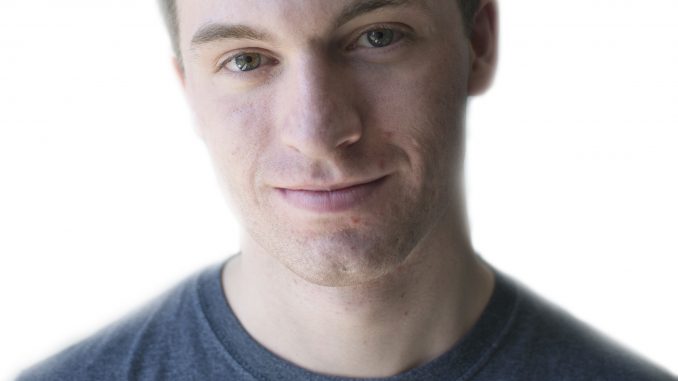
 Ryan Rinaldi knows that bringing sporting-event attendance up to a more-desirable level won’t be a quick fix.
Ryan Rinaldi knows that bringing sporting-event attendance up to a more-desirable level won’t be a quick fix.
“We feel this is more than a one step process,” he said. “It’s not going to be fixed overnight. It’s just not. It has to take a natural approach.”
Rinaldi, the presidential candidate for the ticket FutureTU, correctly quantified the complexity of the issue at Thursday’s second and last debate – moderated by The Temple News – before the incoming TSG administration is decided in this week’s elections.
The many motivations or influences causing thousands of students and alumni to not regularly attend the university’s athletic events has long remained an ambiguous question that TSG and administration have been picking away at. Previous TSG platforms have stated and enacted plans to help solve this issue, yet it’s still being discussed.
In short, it’s a big, complex issue.
This goes for many of the other issues discussed at the debate like supporting community relations, maintaining appropriate state funding, fostering diversity and preventing crime.
In order to address these complex issues, the ideal debate would see the tickets detailing their planned actions, then debating the viability of these plans using facts that were researched prior to the event.
An example of how this ideal process actually worked at Thursday’s debate was when the viability of an extra trash collection day was discussed. Proposed by RepresenTU, the plan called for the City of Philadelphia to start having a second garbage day per week in order to combat the issue of trash on the off campus streets.
Future TU criticized the plan for likely lacking city funding, which prompted RepresenTU to explain that the money would instead come from landlords and the university.
This simple exchange on the viability of the proposal requires candidates to fully think-out and explain their plan. Additionally, this allows students to fully understand their options and vote on what set of plans they believe would work best.
Unfortunately, this isn’t how most of the debate went.
There were a few issues that were addressed with detailed proposals and informed criticism, but not nearly enough.
Candidates often used their time for general statements, saying they would communicate with administration, advocate for students or help people. Although none of these are bad traits to aim for, they’re straightforward, ambiguous and don’t say much to voters.
Additionally, the candidates didn’t use many facts or statistics as rebuttal to the few proposals.
These complex issues deserve more than just positive general statements, they demand a fact-based, intellectual debate about spelled-out plans.
Don’t get me wrong, these tickets have detailed proposals. Both of their online platforms explain their plans.
The problem is that these proposals were hardly mentioned, instead being replaced with broad statements, warranting a request to clarify an actual plan of action from one of the audience members.
It would have been preferable to have more of these proposals mentioned by both tickets and thoroughly debated. Instead, voters will have to find most of the proposals on the written platforms and debate their viability amongst themselves.
Marcus McCarthy can be reached at marcus.mccarthy@temple.edu.



Be the first to comment